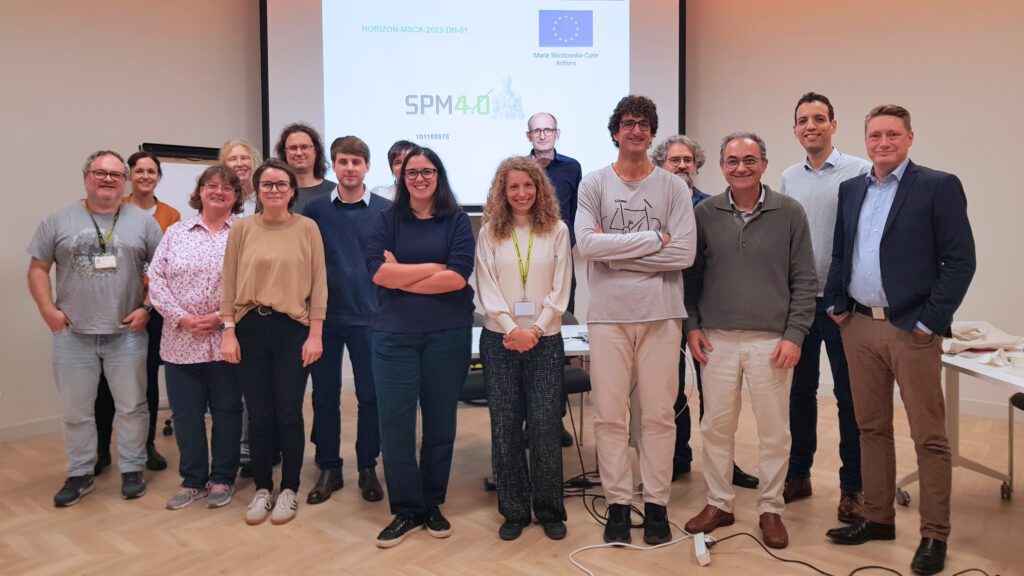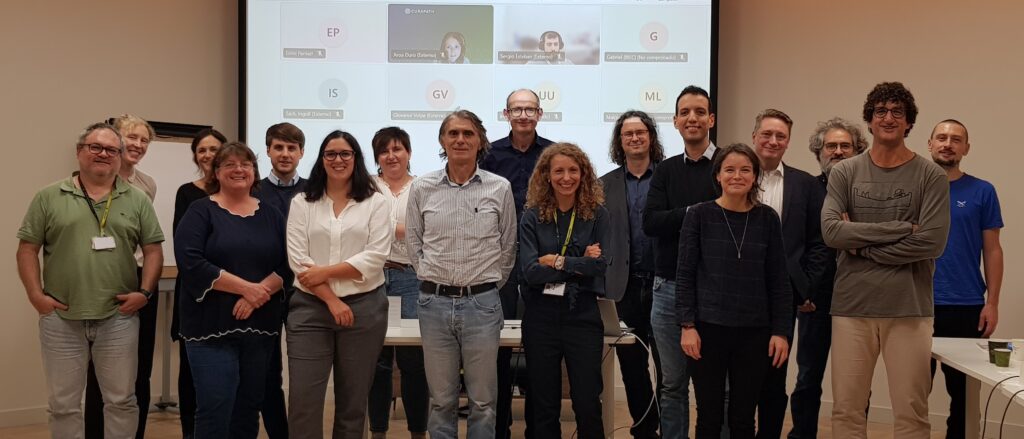Researchers from across Europe gathered for the kick-off meeting of the SPM4.0 project, an innovative Marie Curie Skłodowska Doctoral Network (MSCA-DN) dedicated to advancing the capabilities of autonomous Scanning Probe Microscopy (SPM) powered by Artificial Intelligence. The event, hosted at IBEC, marked the beginning of a forward-thinking initiative aimed at training a new generation of researchers to push the boundaries of technology within the Life Sciences and Medical fields.

On the 13th and 14th of November, IBEC hosted the kick-off meeting of the SPM4.0 EU project, a consortium of 12 beneficiaries and 10 associated partners from 8 different European countries. The project will be led by Gabriel Gomila, Professor at the University of Barcelona (UB), ICREA Academia, and Principal Investigator of IBEC’s Nanoscale Bioelectrical Characterisation group. It will also count with the participation of Bacterial infections: Antimicrobial Therapies group at IBEC, led by IBEC and UB researcher Eduard Torrents.
The SPM4.0 project aims to facilitate the widespread adoption of Scanning Probe Microscopy technologies in public and private research centres, industry and metrology institutions. Its goal is to explore new opportunities in the life sciences and medical sectors, focusing on label-free nanoscopic cell imaging, disease diagnosis and drug nanocarrier development, thereby strengthening Europe’s position as a world leader.
As part of the Marie Skłodowska-Curie Actions Doctoral Networks (MSCA-DN) programme, the SPM4.0 project will be funded for 4 years with almost 3.9 million euros. During this period, 16 young researchers will be trained in the science and technology of autonomous Scanning Probe Microscopes powered by Artificial Intelligence. The two groups from IBEC will be joined by three new PhD students, who will receive state-of-the-art multidisciplinary scientific training in advanced scanning probe microscopy and machine learning, as well as their application in biological and medical contexts.
In addition to their scientific education, this new generation of researchers will also receive training in complementary skills to prepare them for the research job market. They will participate in training sessions on data management, open science, scientific communication, intellectual property rights and entrepreneurship among others.
The kick-off meeting concluded with a strong endorsement of the project’s ambitious vision, inspiring all participants to embark on a journey that promises to reshape the future of microscopic imaging in critical research areas, promising transformative impacts in both science and technology.

For further updates, please check the SPM4.0 project website (available soon) and #SPM40 on social media channels.
Funded by the European Union under grant agreement ID: 101168976. Views and opinions expressed are however those of the author(s) only and do not necessarily reflect those of the European Union. Neither the European Union nor the granting authority can be held responsible for them.






